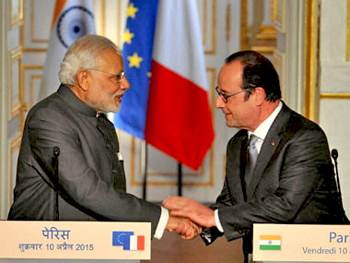Paris, Apr 12: India and France have agreed that a Joint Working Group (JWG) on counter-terrorism will meet and formulate the modalities of greater cooperation on the matter, said the Ministry of External Affairs.

"It is certainly a priority area both for France and India to enhance our ties in this area," he added.
Akbaruddin emphasized that counter-terrorism is an important aspect of the bilateral ties between India and France.
"Counter-terrorism is an important aspect of our bilateral ties. It stems from a common belief that terror is a threat to open, pluralist societies," Akbaruddin said.
India and France had earlier agreed to intensify their cooperation within the framework of JWG on counter-terrorism, including on information and intelligence sharing on terror networks and working together to share experiences on dealing with the growing phenomenon of radicalisation.
Officials on both sides have been asked to schedule the next meeting of the JWG on counter-terrorism at the earliest.
In his joint statement issued after the talks with French President Francois Hollande, Prime Minister Narendra Modi had reiterated India's strong condemnation of the heinous terror attacks in France in January 2015.






Comments
Add new comment